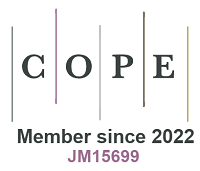Research Article | Open Access
Uniform mesoporous Nb2O5 microspheres with controlled porosity for efficient lithium storage
Views: 29
Chem. Synth. 2025;5:[Accepted].
Author Information
Article Notes
Cite This Article
Abstract
Mesoporous metal oxides with both extraordinary porosity and functionality have been receiving increasing research attention in catalysis, sensing and various energy-related applications. However, progress in the rational and reliable syntheses of many components is quite alleviated, which severely restricts further potential explorations. Here, we present a facile template-free approach to synthesize a type of uniform mesoporous Nb2O5 microspheres with tunable grain and pore sizes. Such method conducted in hydrothermal condition undergoes simple precursor hydrolysis and crystallite aggregation process, which enables flexible parameter control and is easy for large-scale production. In consequence, the obtained mesoporous Nb2O5 microspheres possess excellent and highly controlled mesoporosity and crystallinity, including large grain sizes (33.5 to 61.7 nm) and uniform pore sizes (7.7 to 45.0 nm). Due to the unique structural features for desirable mass diffusion and electrolyte access, the lithium-ion battery (LIB) anode utilizing the mesoscopic Nb2O5 materials enable highly reversible pseudocapacitive charge storage, delivering a high specific capacity of 181 mAh g–1 at 0.05 mA cm–2 and volumetric capacity of 280 mAh cm−3 at 2.5 mA cm−2, good rate capability as well as long-term 1000 stable cycles at 2.5 mA cm−2. Our study affords a convenient toolbox for the synthesis of mesoporous metal oxides, which inspires the development of porous materials towards future technological potentials.
Keywords
Mesoporous materials, metal oxides, inorganic synthesis, lithium-ion battery
Cite This Article
Yang L, Tang D, Li R, Zhang J, Wang W, Li J, He Y, Wen X, Wei Q, Lan K. Uniform mesoporous Nb2O5 microspheres with controlled porosity for efficient lithium storage. Chem. Synth. 2025;5:[Accept]. http://dx.doi.org/10.20517/cs.2024.73
Copyright
© The Author(s) 2025. Open Access This article is licensed under a Creative Commons Attribution 4.0 International License (https://creativecommons.org/licenses/by/4.0/), which permits unrestricted use, sharing, adaptation, distribution and reproduction in any medium or format, for any purpose, even commercially, as long as you give appropriate credit to the original author(s) and the source, provide a link to the Creative Commons license, and indicate if changes were made.












